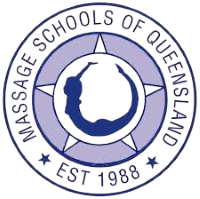
Popular courses in Geelong
Diploma of Leadership and Management
- There are no mandated entry requirements.






Diploma of Community Services
- There are no mandated entry requirements.


Certificate IV in Business
- There are no mandated entry requirements.




Certificate III in Business
- There are no mandated entry requirements.



Diploma of Business
- There are no mandated entry requirements.




Certificate IV in Community Services
- There are no mandated entry requirements.


Certificate IV in Marketing and Communication
- There are no mandated entry requirements.



Diploma of Marketing and Communication
- There are no mandated entry requirements.


Diploma of Event Management
- There are no mandated entry requirements.


Bachelor of Business (Event Management)
- There are no mandated entry requirements.




Bachelor of Business (Marketing)
- There are no mandated entry requirements.







Diploma of Live Production and Technical Services
- There are no mandated entry requirements.


Certificate IV in Library and Information Services
- There are no mandated entry requirements.


Diploma of Library and Information Services
- There are no mandated entry requirements.




Advanced Diploma of Visual Arts
- Evidence of relevant skills, knowledge and employment experience
 RMIT University
RMIT University
Bachelor of Archaeology
- There are no mandated entry requirements.
 La Trobe University
La Trobe University
Bachelor of Arts (History)
- There are no mandated entry requirements.






Bachelor of Arts (Anthropology)
- There are no mandated entry requirements.




Bachelor of Arts (Archaeology)
- There are no mandated entry requirements.
 Australian Catholic University
Australian Catholic University
Bachelor of Arts (Archaeology and Ancient History)
- There are no mandated entry requirements.
 Monash University
Monash University
Frequently Asked Questions
Yes, there are course providers who offer 20 qualification(s) in Geelong. Find a course provider near you. Once you make an enquiry, a course advisor will get in touch to discuss your study options and course fees.
Written by Courses.com.au Team
There are several campuses within the Geelong area that provide arts and culture training. The closest campus is 2km away from the center of Geelong. You can also study a arts and culture course through online, distance or traineeship learning. Find a course provider that best suits your needs.
Written by Courses.com.au Team
Potential job roles within arts and culture includes library assistant, museum assistant or curator (to name a few). Browse related occupations to find a career that suits your needs.
Written by Courses.com.au Team
Further reading


Certificate III in Pathology Collection: Everything You Need to Know
10th February 2025)
